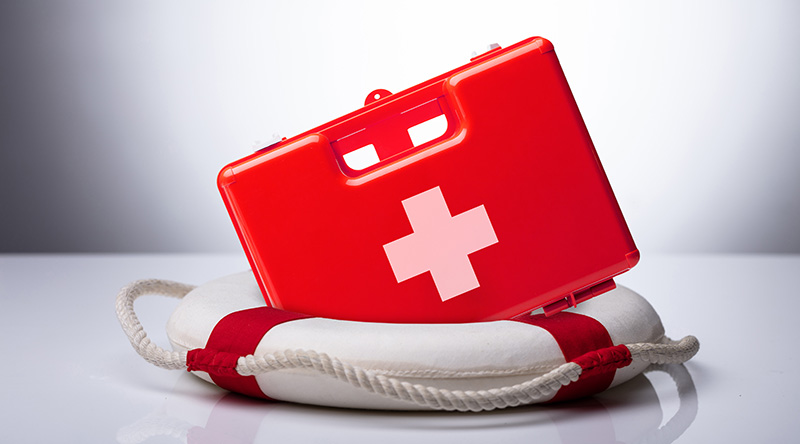In the eyes of the general public, maritime traffic is generally regarded as relatively safe. However those active in the maritime sector (in particular on the claims side) are reminded on regular basis of incidents involving damage to property and/or physical injury of crew or passengers.
The implications of personal injury cases can be quite severe and shipowners should be careful to consider that the handling of a personal injury claim is quite different from the handling of a cargo claim (which is often less complex and where the claims handling process often follows the same pattern of damage quantification, causation and, where liability is established, settlement). In case of claim on the basis of physical injury there will be practical, legal and emotional/emphatic aspects to consider where it will be ever so important for the shipowner to handle the matter in a prudent manner.
Whenever a physical injury has occurred on board of a vessel, the first concern will be to address the physical injury itself and tend to the wounded crew or passenger. First aid will in most cases be provided by the ship’s crew and in case of aggravated injury the injured person will be then be handed over to a nearby medical facility. The shipowner is likely to have already a first impression on the nature and severity of the injury as well as on causation on the basis of first information received from his crew, which will allow an estimation as to potential exposure in terms of cost and liability, in anticipation of formal investigations into the incident. It is recommended that the shipowner already at the early stage provides a a first notification to his liability and FD&D underwriters and ensure that they remain closely updated of developments. Also at this stage the shipowner should try to identify responsibilities in terms of advising relevant parties such as the injured’ s family or relatives. For crew members contact information is usually specifically identified in the employment contract, with the responsibility of handling communication with relatives often remaining with the shipowner or his crewing agent. In passenger injury cases, the appropriate communication channel is not always entirely clear but in most cases the booking agent or tour operator who arranged the booking with the shipowner will be taking the lead.
Once first aid has been provided and proper medical treatment has been arranged, the shipowner should turn to the investigative process of collecting data that is relevant to determine causation and liability. For this process it will be important to collect information that is relevant to the investigations which may differ from case to case. It will in all cases prove important to obtain written statements of master and crew and/or a copy of the incident report, pictures of the place where the incident occurred on board and copies of vessel logs relating to the timing of the incident. In respect of crew, it will in particular be important to obtain a copy of the contract of employment and collective bargaining agreement. It will also prove relevant to confirm at an early stage that work and rest hours have been complied with as well as to verify that all relevant ship certificates are in order. In respect of passenger injuries a copy of the booking confirmation/ticket will be relevant as this will provide insight as to exact terms and conditions under which the passengers have boarded.
In any case it is recommended that all relevant documentation is collected immediately on or after the incident as there may be considerable time between the date of the incident and the date on which a personal injury claim is brought against the shipowner.
In more serious cases Dutch authorities will also board the vessel to investigate the incident, collect relevant vessel documentation and take statements (depending on the case this can be port state control, police and/or port authorities). In those cases it will be important for the shipowner to request a copy of the statements provided by the crew so this can be put on file. In cases where serious physical injury or loss of life is involved it may be prudent for the shipowner to request the local P&I Correspondent to board the vessel and take crew statements and collect relevant information separately from the investigation by the authorities. Having an experienced P&I Correspondent, in case of need assisted by a local counsel, present on board to assist and advise the master and crew while authorities are on board may be recommended in particular where criminal liability of the shipowner, master and/or crew may be at stake.
The shipowner should further ensure to obtain a copy of any records or notices issued by authorities to the ship. Shipowners should also be aware that accidents involving crew on board of a Dutch flagged vessel do require formal notification to Dutch authorities (ILENT) after which a formal investigation into the incident may be commenced by the latter. Also here it will be important for the shipowner to ensure that relevant information is collected prior to the start of such inquiry.
NNPC Correspondents BV are available to assist in any Dutch port and have a broad network of local representatives and lawyers who may be of support. We invite all of our readers to contact NNPC Correspondents BV in case of personal injury for prevention advice, legal assistance and/or practical recommendations at correspondents@nnpc-correspondents.nl

